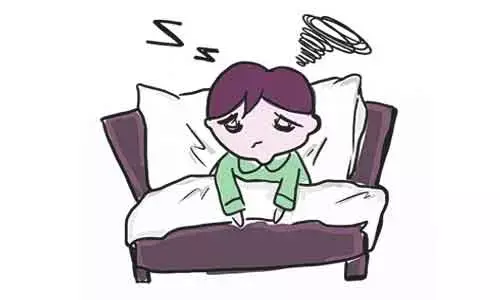- Home
- Medical news & Guidelines
- Anesthesiology
- Cardiology and CTVS
- Critical Care
- Dentistry
- Dermatology
- Diabetes and Endocrinology
- ENT
- Gastroenterology
- Medicine
- Nephrology
- Neurology
- Obstretics-Gynaecology
- Oncology
- Ophthalmology
- Orthopaedics
- Pediatrics-Neonatology
- Psychiatry
- Pulmonology
- Radiology
- Surgery
- Urology
- Laboratory Medicine
- Diet
- Nursing
- Paramedical
- Physiotherapy
- Health news
- Fact Check
- Bone Health Fact Check
- Brain Health Fact Check
- Cancer Related Fact Check
- Child Care Fact Check
- Dental and oral health fact check
- Diabetes and metabolic health fact check
- Diet and Nutrition Fact Check
- Eye and ENT Care Fact Check
- Fitness fact check
- Gut health fact check
- Heart health fact check
- Kidney health fact check
- Medical education fact check
- Men's health fact check
- Respiratory fact check
- Skin and hair care fact check
- Vaccine and Immunization fact check
- Women's health fact check
- AYUSH
- State News
- Andaman and Nicobar Islands
- Andhra Pradesh
- Arunachal Pradesh
- Assam
- Bihar
- Chandigarh
- Chattisgarh
- Dadra and Nagar Haveli
- Daman and Diu
- Delhi
- Goa
- Gujarat
- Haryana
- Himachal Pradesh
- Jammu & Kashmir
- Jharkhand
- Karnataka
- Kerala
- Ladakh
- Lakshadweep
- Madhya Pradesh
- Maharashtra
- Manipur
- Meghalaya
- Mizoram
- Nagaland
- Odisha
- Puducherry
- Punjab
- Rajasthan
- Sikkim
- Tamil Nadu
- Telangana
- Tripura
- Uttar Pradesh
- Uttrakhand
- West Bengal
- Medical Education
- Industry
Transcranial alternating current stimulation effective option for insomnia

All adults with chronic insomnia do not respond to the recommended therapeutic options of cognitive behavioral therapy and approved hypnotic drugs.Therefore researchers are in look out for new options.
Transcranial alternating current stimulation is a novel effective modality of treatment for chronic insomnia, finds a new study. Transcranial alternating current stimulation may offer a novel potential treatment modality for insomnia.The study has been published in the journal Psychotherapy and Psychosomatics.
This study aimed to examine the efficacy and safety of Transcranial alternating current stimulation for treating adult patients with chronic insomnia.
Sixty-two participants with chronic primary insomnia received 20 daily 40-min, 77.5-Hz, 15-mA sessions of active or sham tACS targeting the forehead and both mastoid areas in the laboratory on weekdays for 4 consecutive weeks, followed by a 4-week follow-up period. The primary outcome was response rate measured by the Pittsburgh Sleep Quality Index (PSQI) at week 8. Secondary outcomes were remission rate, insomnia severity, sleep onset latency (SOL), total sleep time (TST), sleep efficiency, sleep quality, daily disturbances, and adverse events at the end of the 4-week intervention and at the 4-week follow-up.
Of 62 randomized patients, 60 completed the trial. At the end of the 4-week intervention, the active group had higher response and remission rates than the sham group. At 4-week follow-up, the active group had better sleep quality compared to the sham group (53.4% [16/30] vs. 16.7% [5/30]), although remission rates were not different between groups.
In addition, compared with the sham group, the active group showed improvements in sleep onset latency, total sleep time, sleep efficiency, and sleep quality.
The group receiving transcranial alternating current stimulation showed improvement in symptoms both at post intervention and 4 week follow up without reportingadverse events or serious adverse responses.
The researchers concluded that the findings show that the transcranial alternating current stimulation applied in the present study has potential as an effective and safe intervention for chronic insomnia within 8 weeks.
For further reference log on to:
Hong-Xing Wang et al. Effect of Transcranial Alternating Current Stimulation for the Treatment of Chronic Insomnia: A Randomized, Double-Blind, Parallel-Group, Placebo-Controlled Clinical Trial, Psychotherapy and Psychosomatics (2019). DOI: 10.1159/000504609
Dr Kamal Kant Kohli-MBBS, DTCD- a chest specialist with more than 30 years of practice and a flair for writing clinical articles, Dr Kamal Kant Kohli joined Medical Dialogues as a Chief Editor of Medical News. Besides writing articles, as an editor, he proofreads and verifies all the medical content published on Medical Dialogues including those coming from journals, studies,medical conferences,guidelines etc. Email: drkohli@medicaldialogues.in. Contact no. 011-43720751


